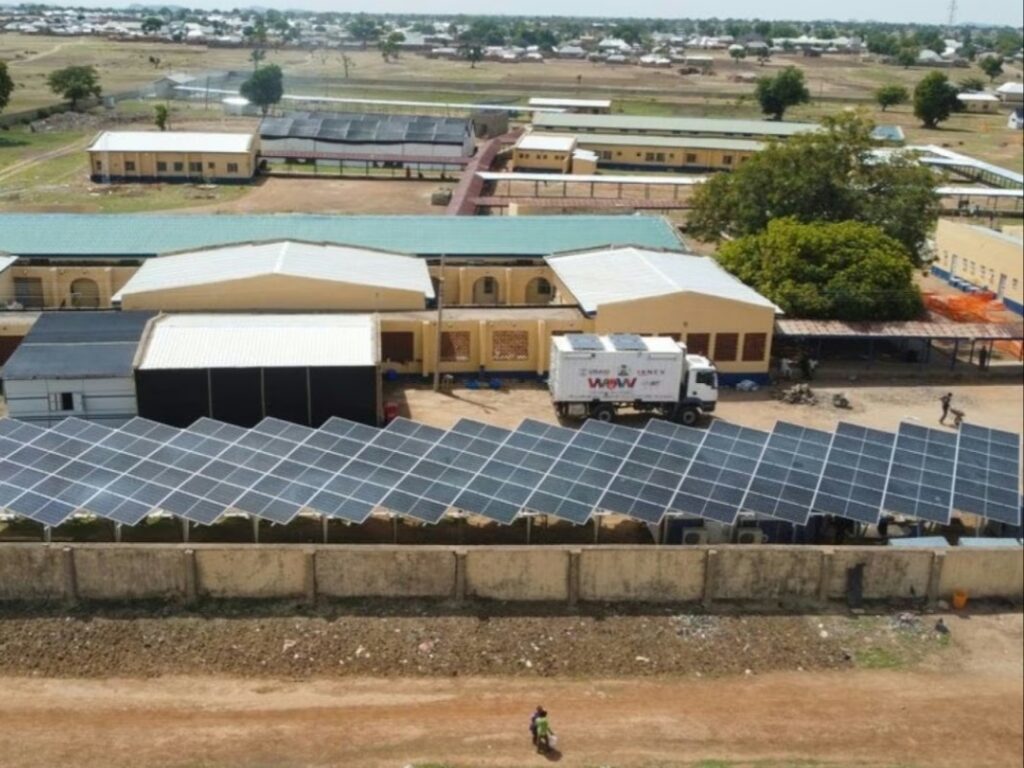
Solar energy is rapidly reshaping Nigeria’s education and agriculture sectors, improving access to electricity, enhancing food production, and empowering communities across the country.
Powering Schools and Students
Under the Energising Education Programme (EEP), the Rural Electrification Agency (REA) has provided 24 federal tertiary institutions with solar power, including a 3.3 MW solar plant at the University of Abuja. An additional 8 institutions are set to benefit in the next phase.
Solar installations have also reached 20 federal universities and 3 teaching hospitals through other REA initiatives. In Ogun State, Baobab+ Nigeria and JCI Abeokuta Hills are lighting up secondary schools to boost students’ study hours and safety.
In Abuja’s FCT, schools are introducing solar training labs, preparing students for careers in green energy.
Energising Farms and Food Security
Solar is also transforming agriculture. REA and CESEL are deploying solar-powered irrigation systems across 200,000 hectares, aiming to boost crop yields by 1.2 million tonnes annually.
In Kaduna State, over 10,000 solar-powered pumps have been distributed to farmers to enable dry-season farming and reduce fuel costs.
A Global Trend
Around the world, solar-agriculture innovations are advancing. In the United States, agrivoltaics growing crops under solar panels is improving yields. In Zanzibar, women-led Solar Mamas have electrified over 1,800 homes. In India, solar is powering rural schools and helping reduce pesticide use on farms.
Why It Matters
Solar energy is affordable, sustainable, and reliable. It is proving to be a powerful tool for education, agriculture, and rural development. As more communities harness the sun, the future looks brighter for students and farmers alike.
